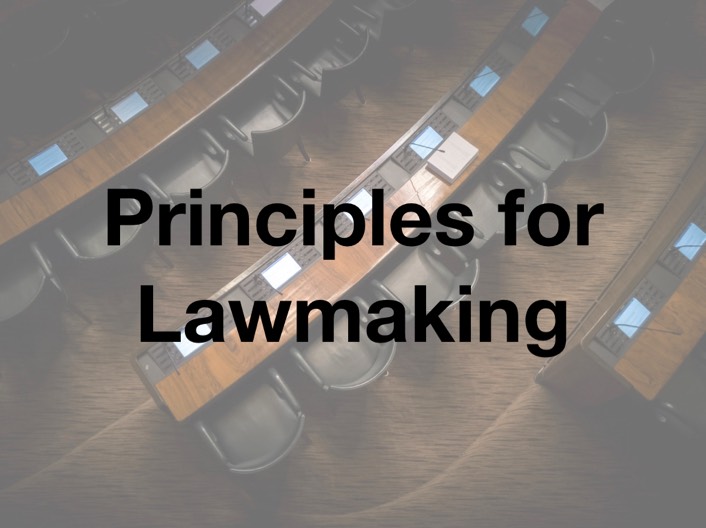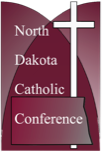
Principles for Lawmaking
by Christopher Dodson
Executive Director
North Dakota Catholic Conference
December 2018
Now that the midterm elections are over and both the North Dakota legislative session and the new session of the U.S. Congress have begun, we should reflect on how we, as Catholics, engage in the making of public policy.
We can begin by shedding all partisan, ideological, or identity politics. Our entire outlook and motivation should flow from our Catholic Christian faith. But wait, you might ask, isn’t that a form of identity politics? No. At the core our Christian faith are several principles that are antithetical to Christian identity politics. Every human person is created in God’s image and is bestowed with a dignity that is not dependent upon ethnicity, race, political beliefs, religion, or even behavior. Moreover, loving our neighbor means to love everyone and seek solidarity with all. This charity and solidarity, combined with the commitment to seek the common, not group or individual good, is the purpose of political life. There is no place for a politics of Christianism in Christianity.
The next step is to approach lawmaking with humility. God bestows us with wonderful gifts that can lead to the betterment of lives and communities, but neither legislators nor constituents will create the Kingdom of God here on earth. Thinking that we can is a form of hubris that will lead to unintended consequences.
Recognizing our limitations, we turn to seeking wisdom. We need wisdom of discernment. We need wisdom to pursue what is needed, rather than pursuing something solely because it furthers political advantage, fundraising, or membership satisfaction. We need wisdom to ask why something is done the way it is rather seeking change for change’s sake.
Embracing humility, seeking wisdom, and rejecting factional identities prepare ourselves for engagement in the public square. The next step is examining every legislative proposal in light of a few fundamental principles.
As mentioned, every human person has an inherent dignity that society must respect, including the right to reach his or her fullest human good. Mirroring the Trinity, we are social creatures. As such, the dignity of the human person is best fostered and protected within the community and especially the family. For this reason, we are committed to the common good, not our individual good. The common good means all the conditions in society that allow individuals and groups to reach their fullest human good, both in this life and the next. The church’s social doctrine includes many other important principles, but most stem from these fundamental teachings.
One more principle deserves attention when it comes to legislation — the preferential option for the poor. It requires us to place the needs of the poor before our own and always ask how a particular policy proposal would affect the least among us.
Catholics have a moral duty to participate in the political process according to our abilities. For most of us that means more than voting on election day. The real work begins with the legislatures. You can start by asking about every bill: Does it respect or disrespect human dignity? Does it strengthen or weaken families and communities? Does it contribute to the common good? How does it affect the poor and does it put their needs first?
Four questions for every bill. The temptation we all face is to ask these questions only when we hear about bills that directly impact the unborn, people in poverty, religious rights, parents, immigrants, or other concerns to the church.
We should, however, ask those questions about every legislative proposal. Whether the bill is about road construction, jobs creation, taxes, higher education, schools, professional licensure, agriculture, mining, water, or anything else we should ask those fundamental questions. Good people might reach different conclusions, but no bill or policy proposal should escape being subjected to those universal questions.
We also have an obligation to stay informed. If you have not done so, go to the North Dakota Catholic Conference web site (ndcatholic.org) to join its legislative network. In addition, follow the conference’s Facebook page for the most up-to-date information.
Finally, pray for our lawmakers. Pray that they devote each day with dedication to working for human dignity, the common good, and the preferential option for the poor.
What We Do
The North Dakota Catholic Conference acts on behalf of the Roman Catholic bishops of North Dakota to respond to public policy issues of concern to the Catholic Church and to educate Catholics and the general public about Catholic social doctrine.

Contact Us
North Dakota Catholic Conference
103 South Third Street, Suite 10
Bismarck, North Dakota
58501
1-888-419-1237
701-223-2519
Contact Us

